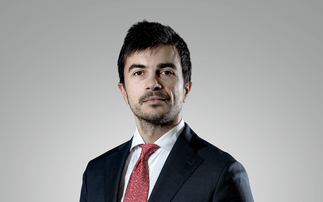Having managed UK equities for more than two decades, fund manager Colin Morton reveals how he has delivered a steady combination of capital growth and income in the Franklin UK Equity Income fund
The search for income among FTSE stocks tends to focus on the small number of mega-caps that account for a large proportion of the dividends paid.
Some fund managers may feel stifled by the dominance of such stocks in the FTSE 100 particularly.
However, Colin Morton, manager of the £404m* Franklin UK Equity Income Fund, believes his approach to this part of the index is helping him to deliver a healthy and sustainable level of income at a time when investors need it the most.
"Income investors face a difficult challenge currently because they are receiving zero on cash investments while short-dated government bonds of less than five years are yielding less than 50 basis points and 10-year government bonds are only providing 1%.
"Many investors in this space can end up dipping into their capital in order to supplement their income," explains Morton.
Risk-averse
While many investors feel they need to move up the risk scale and into high-yielding bonds or alternative assets in order to derive a healthy level of income, Morton's relatively risk-averse, large-cap investment approach has delivered an annual income growth rate of 5.5% over the last 20 years, well ahead of the corresponding rate of inflation at 2%* and the FTSE All Share index.
"We take a sensible approach to investing in UK equities and aim to deliver above-average returns without taking on huge amounts of risk," he says.
"If you look at the beta of this fund's portfolio then it is very evident that we are less risky than our peers in the market."
Morton argues the simplistic nature of the strategy and a focus on good quality and high-dividend paying companies is important in today's complex economic environment. He believes his strategy resonates with investors searching for income due to the fact it is a completely transparent, long-only portfolio.
Stock selection
Morton uses a combination of bottom-up and top-down processes to select stocks for the portfolio, which has a minimum of 70% invested in the FTSE 100.
"Despite the FTSE 100 being a reasonably consistent list of companies, it's important that income investors don't start with a blank sheet of paper," says Morton.
"You must start by looking at where the yield is coming from in the market and analyse what percentage of the overall market yield those stocks account for.
"As an income manager, I also focus on the type of economic environment we are in; whether it is a cyclical or defensive cycle, or if I am willing to pay more for high-quality stocks because we are in a low growth and low inflationary world."
Though he understands the ‘lumpy' nature of the FTSE 100, where around 30% of the market yield is derived from just four or five companies, he tries to take a practical approach, arguing such figures are a "reality of life".
Yield requirements
Morton explains: "I do not let yield be the sole consideration of the stocks I invest in, which is very important to this strategy.
"If a company meets all of our criteria but is not, for example, using its free cashflow to pay as much in dividends because it is growing the business or conducting bolt-on deals they believe will add long-term quality to their business, I don't want to miss out on it because it has a lower yield."
Morton often allocates a small part of his portfolio to such stocks citing that a "pragmatic and flexible approach" is important alongside his large-cap focus, particularly as he anticipates that many of his lower-yielding holdings will deliver significant dividend growth in the future.
Click here to find out more about the Franklin Templeton UK Equity Income Fund














